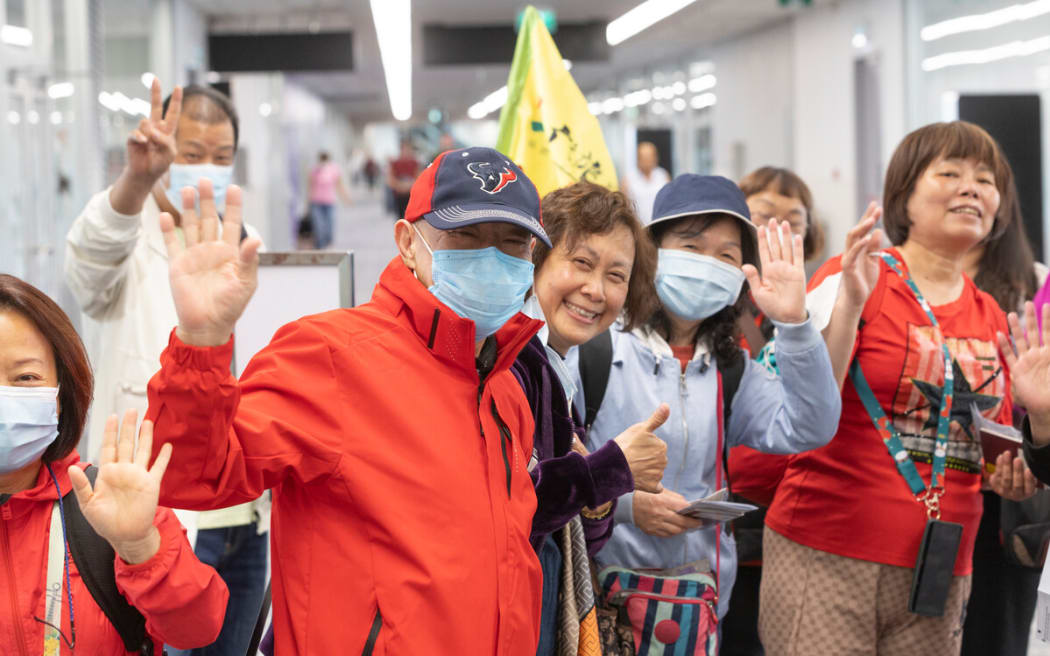
Photo: RNZ / Liu Chen
Asian residents are disappointed by the government's decision to raise the international visitor levy, arguing that it will ultimately hurt the country's economy and tourism revenue.
The International Visitor Conservation and Tourism Levy (IVL), introduced by the Labour government in 2019, will rise from $35 to $100 in October - almost triple the original amount.
The levy was set up to help with infrastructure and conservation costs, and the increase would further help cover such expenditure, minister for tourism and hospitality Matt Doocey and minister of conservation Tama Potaka said in a joint statement on Tuesday.
"A $100 IVL would generally make up less than 3 percent of the total spending for an international visitor while in New Zealand, meaning it is unlikely to have a significant impact on visitor numbers," the statement said.
Lisa Li, managing director of China Travel Service, said the change was disappointing and would deter tourists, especially since application fees for visitor visas have also risen recently.
"It seems minor, but it is not a positive message we're sending out to potential international visitors," Li said.
"This is adding more and more cost for people to travelling to New Zealand, [especially] given that we already are expensive."
It was also short notice for the industry to prepare for the change, especially since many Chinese visitors would have already made plans to travel during the country's seven-day National Day holiday in early October, she said.
"It will be the busy time for visitors coming up," she said. "For us as an inbound operator, we have to prepare quotes for our overseas partners and have some lead time."

Photo: Supplied / Auckland Airport
Li believed the tourism industry was doing reasonably well after the Covid-19 pandemic, but this move would affect the sector's recovery.
"After more than three years of hard time, we're still at the stage of nurturing a recovery," Li said. "The industry needs more support from the government ... rather than increasing levies and visa fees to upset visitors."
Li questioned how much the increased rate could practically do to improve infrastructure or visitors' experience.
Auckland-based tour guide Jeffrey Ren also expressed dismay at the international levy hike, arguing that it would negatively impact his business.
"All costs have an impact on people's decisions," Ren said. "Any additional cost would make them reconsider their decision. They might end up choose other places."
Ren had noticed increases in entrance fees at some tourist sites, including helicopter tours and rides on Queenstown's iconic steamboat. When added to the new tourism visa fees, travel to New Zealand became even more expensive.

Photo: Supplied/ Auckland Airport
But Simon Cheung, chair of the NZ China Travel and Tourism Association, believed the increase was reasonable and wouldn't affect travel options significantly.
"With inflation, everything is going up, including the cost of maintaining tourism sites in New Zealand," Cheung said. "I don't really think [raising the tourism levy] will influence how people are coming into the country.
"Costs are going up worldwide and people expect costs to be similarly high in New Zealand," he said. "It's not cheap anyway. So, people already expect that they will spend money."
Kelvin Anto had applied for his parents to visit from India in order to look after his newborn baby.
Anto said the increase of the levy - on top of earlier visa application fee hikes - would add to the financial burden that visitors already face.
"People who come from like developing countries like India and China ... feel a lot of pressure," he said. "The $100 might be a small amount for some ... people in New Zealand, but it's a huge amount for our community."
Migrant Archie Mohanlal, who is expecting a baby and was planning on bringing his parents over next year, shared the concern.
"The increase in cost is shocking news for us," Mohanlal said. "It's not fair that they are increasing the cost of visitor visas."
He said people would think twice about if they wanted to visit New Zealand and that would affect businesses, especially tourism and hospitality.
"I think it's not a right move because ... it won't help in the development of New Zealand," he said. "I think less people would prefer to come here or know about this country."


